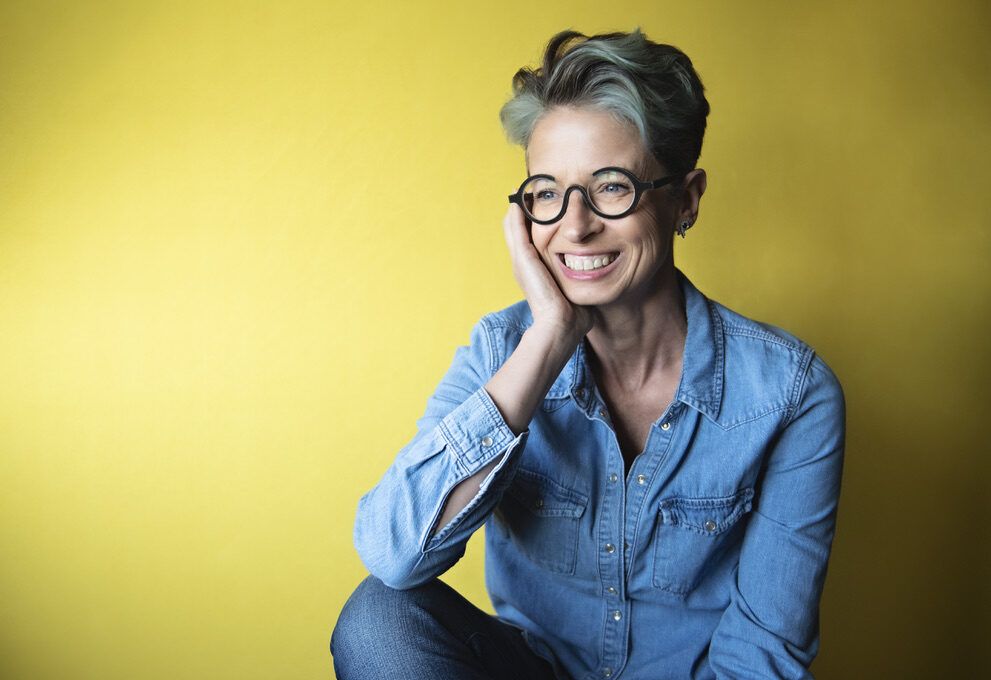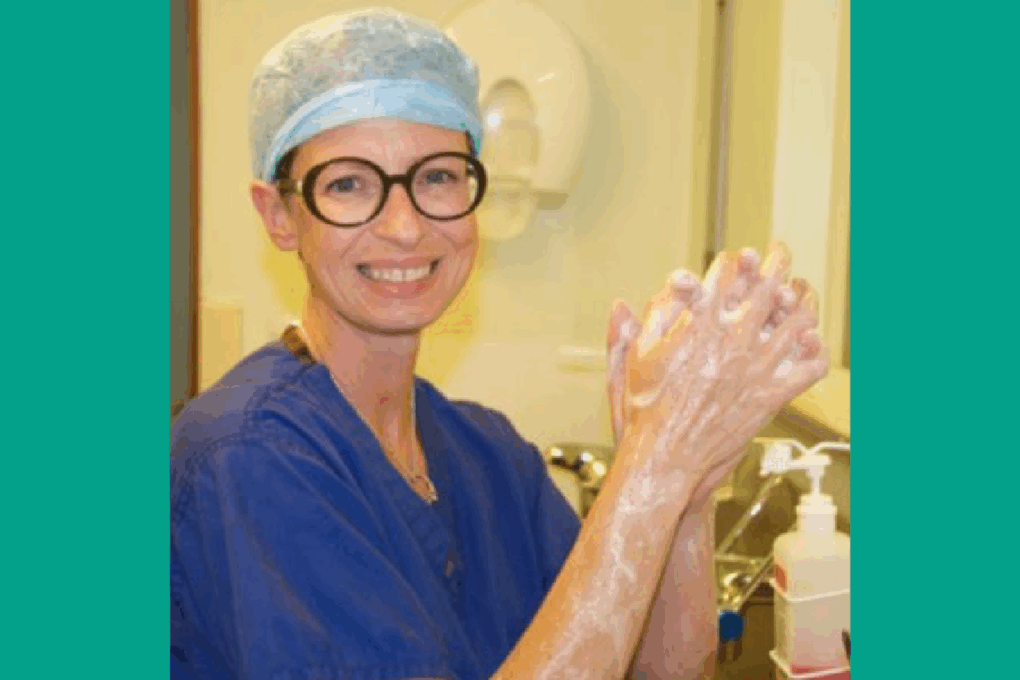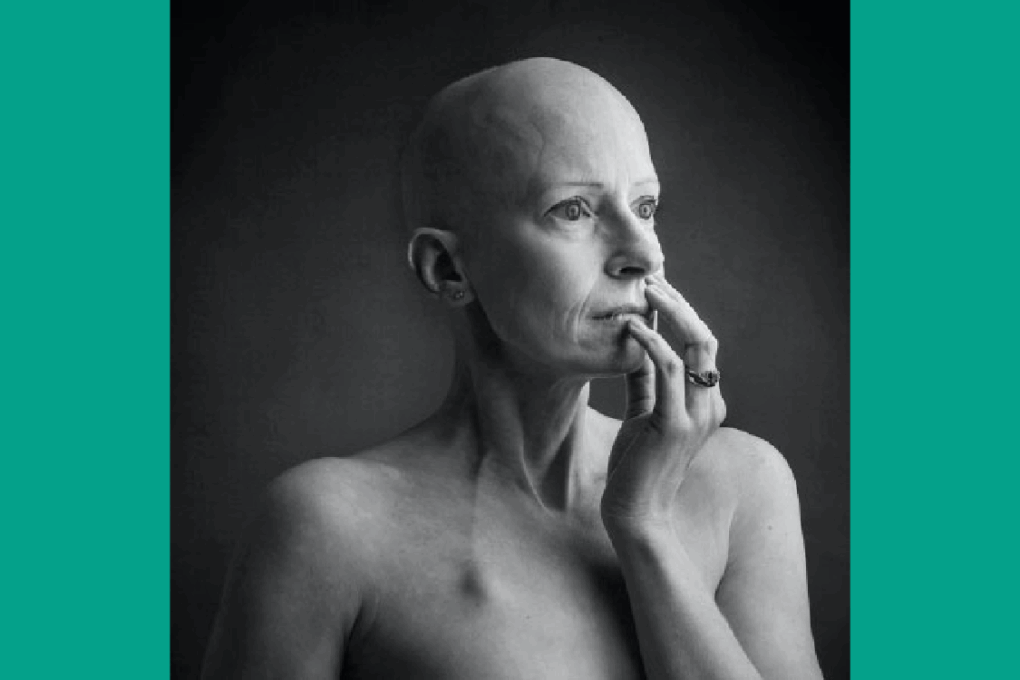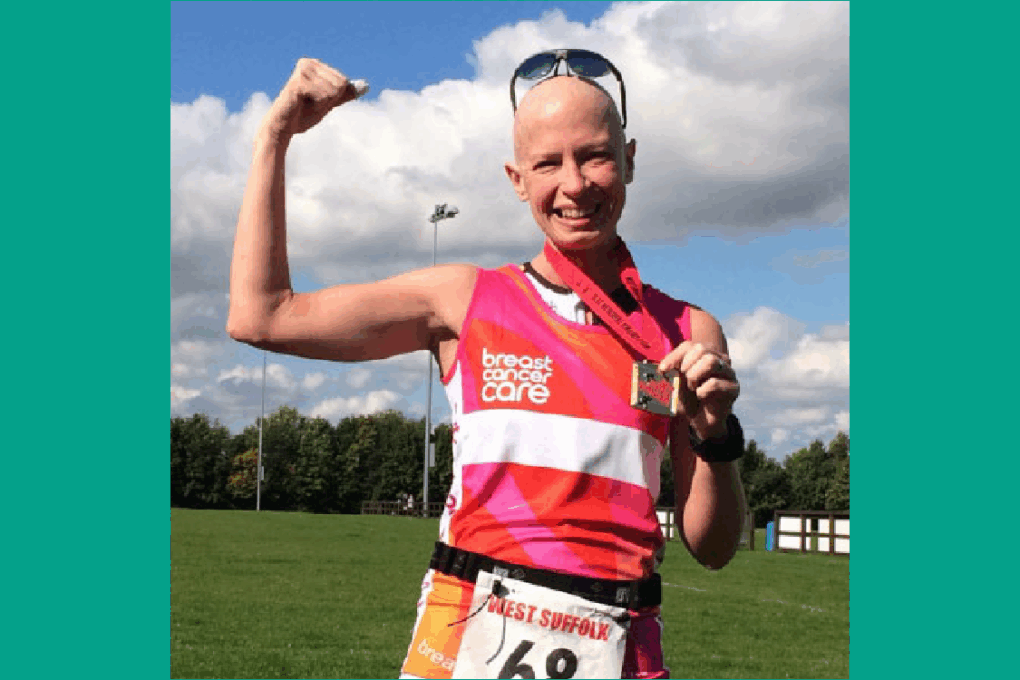‘I’m taking a cancer drug that I was researching 20 years ago’

For as long as she can remember, Dr Liz O’Riordan wanted to work in healthcare. Her mum was a nurse, her dad was a surgeon, and she was fascinated by the human body from an early age.
“It was always going to be surgery for me,” says Liz. “After medical school, I studied the molecular genetics of thyroid cancer for my PhD and eventually became a consultant breast surgeon at Ipswitch Hospital. I loved building a relationship with my patients.”
But in 2015, Liz’s life changed forever when a 5.5cm tumour was found in her breast. Further investigations led to a diagnosis of stage 3 breast cancer.
“It was a total shock,” says Liz. “I was 40 years old, and I didn’t fall into an ‘at-risk’ category for the disease.”
In the UK, women are eligible for routine breast screening mammograms between the ages of 50 and 70 years. Invitations are sent out every 3 years as part of the NHS Breast Screening Programme.

“Even if I’d been having routine mammograms, my cancer wouldn’t have been picked up because it was a mixture of ductal and lobular cancer. Lobular is sneaky because it grows in a single file so doesn’t form the blobs that you can see on a mammogram.”
Chemo, scanxiety, and survivor’s guilt
Although Liz was a breast cancer surgeon, she was still scared and hated not being in control of what was happening. Her treatment began with chemotherapy, followed by a mastectomy and reconstruction.
“After the initial treatment, 13cm of cancer was found to be still in my breast that hadn’t shown up on the MRI,” she explains. “It had spread to two of my lymph nodes, so I had all of them removed from my armpit and then had radiotherapy in my chest wall. I also had my ovaries switched off with an injection. That was about a year of treatment in total, before getting the all-clear.”
In 2018, after 2 cancer-free years, Liz noticed a nodule of scar tissue on her chest wall.
“It was a 2.5cm local reoccurrence. I had more surgery to have that tumour removed, as well as another round of radiotherapy. At this point I had my ovaries removed, before getting the all-clear again.
“I had to stop my work in the operating theatre. Leaving a career that I loved at the age of 43 was an enormous blow. I quickly became bored and needed to find other ways to help people.”

Liz began blogging about cancer, using her medical expertise and patient experience.
“I’m driven by the need to combat the misinformation online about cancer and health in general,” says Liz. “Sometimes I feel I’m trying to save a sinking ship, but that’s what keeps me going.”
The blog led her to co-author first book, The Complete Guide to Breast Cancer, in 2019, followed by her memoir, Under the Knife, in 2023. Her latest book, The Cancer Roadmap, will be published in January 2026.
“The day before my memoir was published, I noticed a red ulcer above my mastectomy scar. That turned out to be my second local reoccurrence. I had more surgery and now get monthly injections to stop me from producing oestrogen. I’m also on a targeted therapy to reduce the risk of me getting stage 4 cancer.
“I had no idea how much cancer would affect my mental health. I’ve had depression, PTSD, scanxiety, the fear of reoccurrence, and survivor’s guilt when friends with cancer die and you don’t. It’s an awful lot to deal with.”
‘It’s astounding how quickly our understanding of cancer is progressing’
Today, almost 10 years since her first breast cancer diagnosis, Liz is cancer-free. As someone who has experienced the power of cancer healthcare, she is advocating for Our Future Health so that health researchers can learn even more about a disease that affects almost 1 in 7 women in their lifetimes.
“It’s astounding how quickly our understanding of breast cancer is progressing,” says Liz. “There have been 20 new cancer drugs approved in the UK in the last five years (NICE), which is fantastic. There are more targeted therapies available, including Keytruda and Olaparib, as well as more surgical techniques to help women keep their breasts and avoid needing a mastectomy.
“All of these treatments are available because of cancer research in the past. I’m benefitting from this progress myself. I’m taking a drug that I was studying 20 years ago.
“That’s why I’m supporting Our Future Health. All the treatments you’ve received in your lifetime are thanks to health research. By joining Our Future Health, you can pay it forward.”
Areas for research

Despite progress in treatments, cancer rates among 25 to 49-year-olds in the UK increased by 24% between 1995 and 2019, according to Cancer Research UK.
“We need more research into why this is happening,” says Liz. “We also need more research into rare cancers. It would be great to see breast cancer researchers collaborating and sharing their discoveries to help the rarer cancers. I’d love to see not just breast cancer, but every cancer, get an equal look-in.”
Another area Liz wants to see progress in is exercise oncology. She is passionate about the value of exercise before, during, and after cancer.
And for good reason. A recent trial involving people from the US, UK and Australia has found that a structured exercise regime after cancer treatment can dramatically reduce the risk of dying, the disease returning, or a new cancer developing.
Exercise was also found to reduce the risk of cancer patients dying by a third. That’s why in the future, Liz hopes to see gyms in cancer units, and exercise included as part of the prescription given when someone gets a cancer diagnosis.
‘I believe the future is really bright for a lot of people living with cancer’
Today, Liz is an award-winning speaker and has given keynote addresses for TEDx, Breast Cancer Now, and the NHS.
Her voice is a steadfast one for her thousands of YouTube subscribers, sharing stories of resilience and breast cancer awareness.
“Getting diagnosed with breast cancer is terrifying. It’s easy to think the worst, and there’s a lot of grief that you have to deal with. Losing your hair, your fertility, your job. There’s so much. But for many people today, breast cancer is not a death sentence. People survive, and there is hope.
“I’d like to say to anyone reading this with a breast cancer diagnosis, remember that many of the statistics your oncologist gives you are at least 10 years out of date. To get the latest 10-year survival data, those patients were treated 10 years ago, before some of the latest drugs existed. It takes time for new numbers to come in. But I promise you they’re coming, and they have improved.
“I believe the future is really bright for many people living with a cancer diagnosis. But that’s why we need large-scale, long-term research programmes like Our Future Health, to help us achieve this.”
More about breast cancer
Liz’s original blog posts are still available to read on her website, liz.oriordan.co.uk.
For more information about breast cancer, visit breastcancernow.org. Breast Cancer Now is an affiliate charity partner of Our Future Health.

Let’s prevent disease together
By volunteering for Our Future Health, you can help health researchers discover new ways to prevent, detect and treat common conditions such as diabetes, cancer, heart disease, stroke and Alzheimer’s.